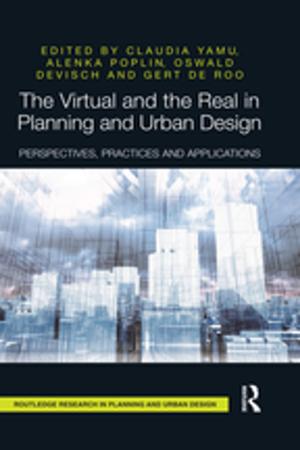Designing Better Building
Nonfiction, Art & Architecture, Architecture, Reference, Design & Drafting| Author: | ISBN: | 9781134376988 | |
| Publisher: | Taylor and Francis | Publication: | July 31, 2004 |
| Imprint: | Routledge | Language: | English |
| Author: | |
| ISBN: | 9781134376988 |
| Publisher: | Taylor and Francis |
| Publication: | July 31, 2004 |
| Imprint: | Routledge |
| Language: | English |
Design is widely recognised as the key to improving the quality of the built environment. This well-illustrated book comprises 15 chapters written by leading practitioners, clients, academics and other experts, and presents the latest thinking on what design quality is and how to achieve it. For design practitioners and their clients alike, the book provides evidence to justify greater focus on, and investment in, design. It summarises the benefits that arise from good design - such as, civic pride in the urban environment, the stimulation of urban regeneration, corporate identity, occupant productivity and health in offices, improved learning outcomes in schools, better patient recovery rates in hospitals, as well as reduced environmental impact. And it illustrates these benefits through case study examples. Eight chapters focus on case studies of exemplary buildings in particular sectors - offices, schools, housing, and hospitals - and explain why and how they came to be designed, and the design qualities they exhibit.
Design is widely recognised as the key to improving the quality of the built environment. This well-illustrated book comprises 15 chapters written by leading practitioners, clients, academics and other experts, and presents the latest thinking on what design quality is and how to achieve it. For design practitioners and their clients alike, the book provides evidence to justify greater focus on, and investment in, design. It summarises the benefits that arise from good design - such as, civic pride in the urban environment, the stimulation of urban regeneration, corporate identity, occupant productivity and health in offices, improved learning outcomes in schools, better patient recovery rates in hospitals, as well as reduced environmental impact. And it illustrates these benefits through case study examples. Eight chapters focus on case studies of exemplary buildings in particular sectors - offices, schools, housing, and hospitals - and explain why and how they came to be designed, and the design qualities they exhibit.















